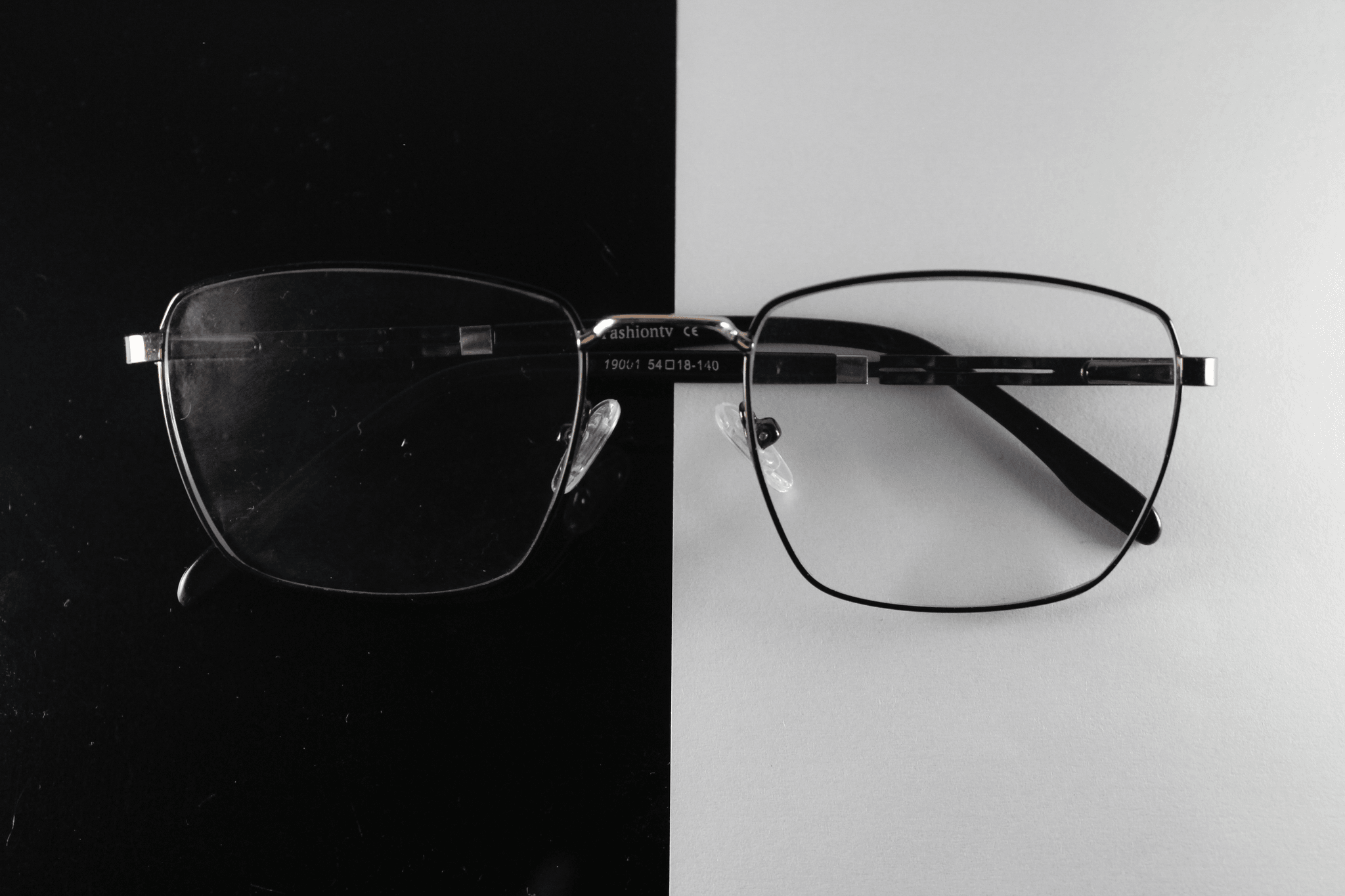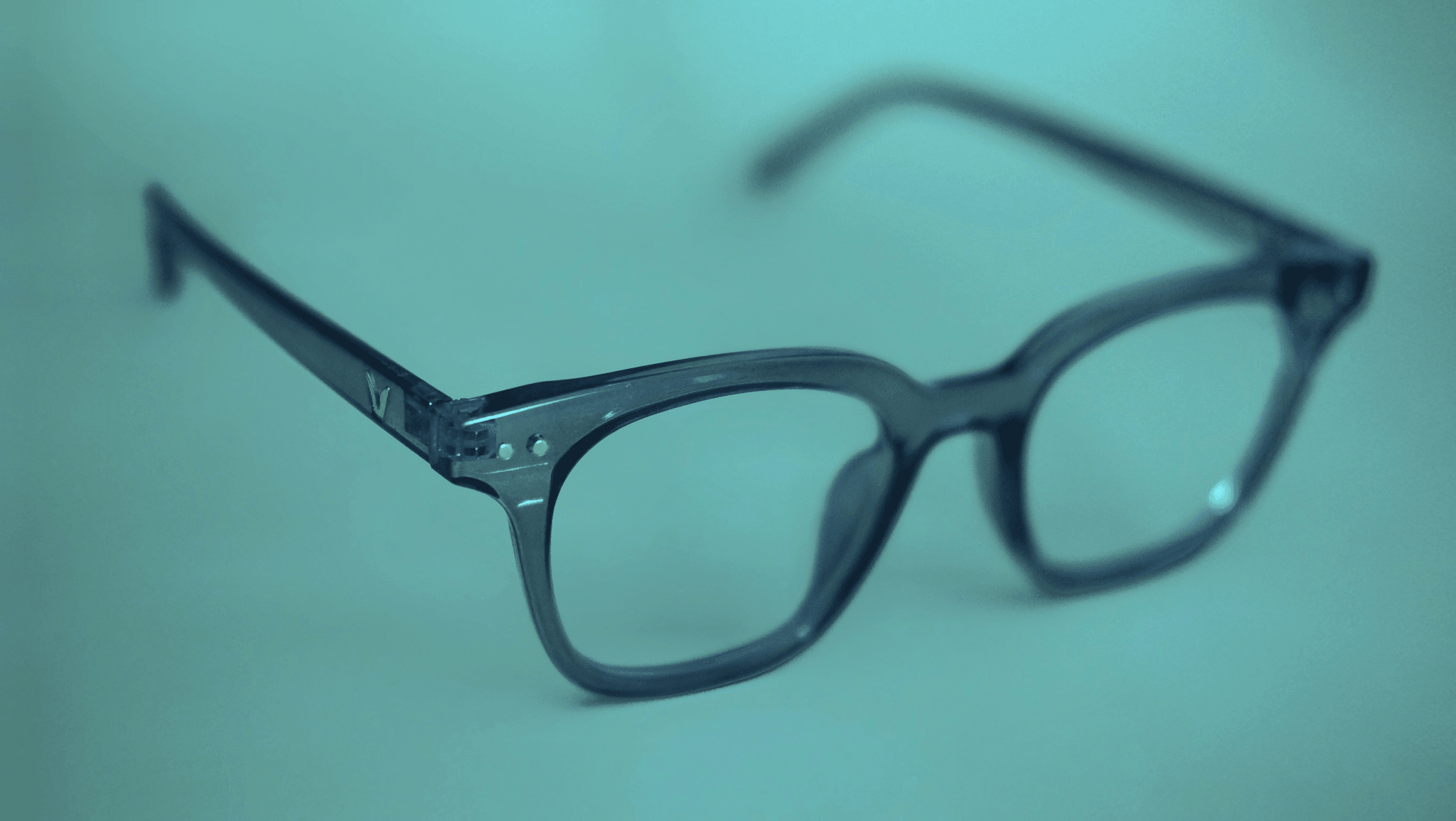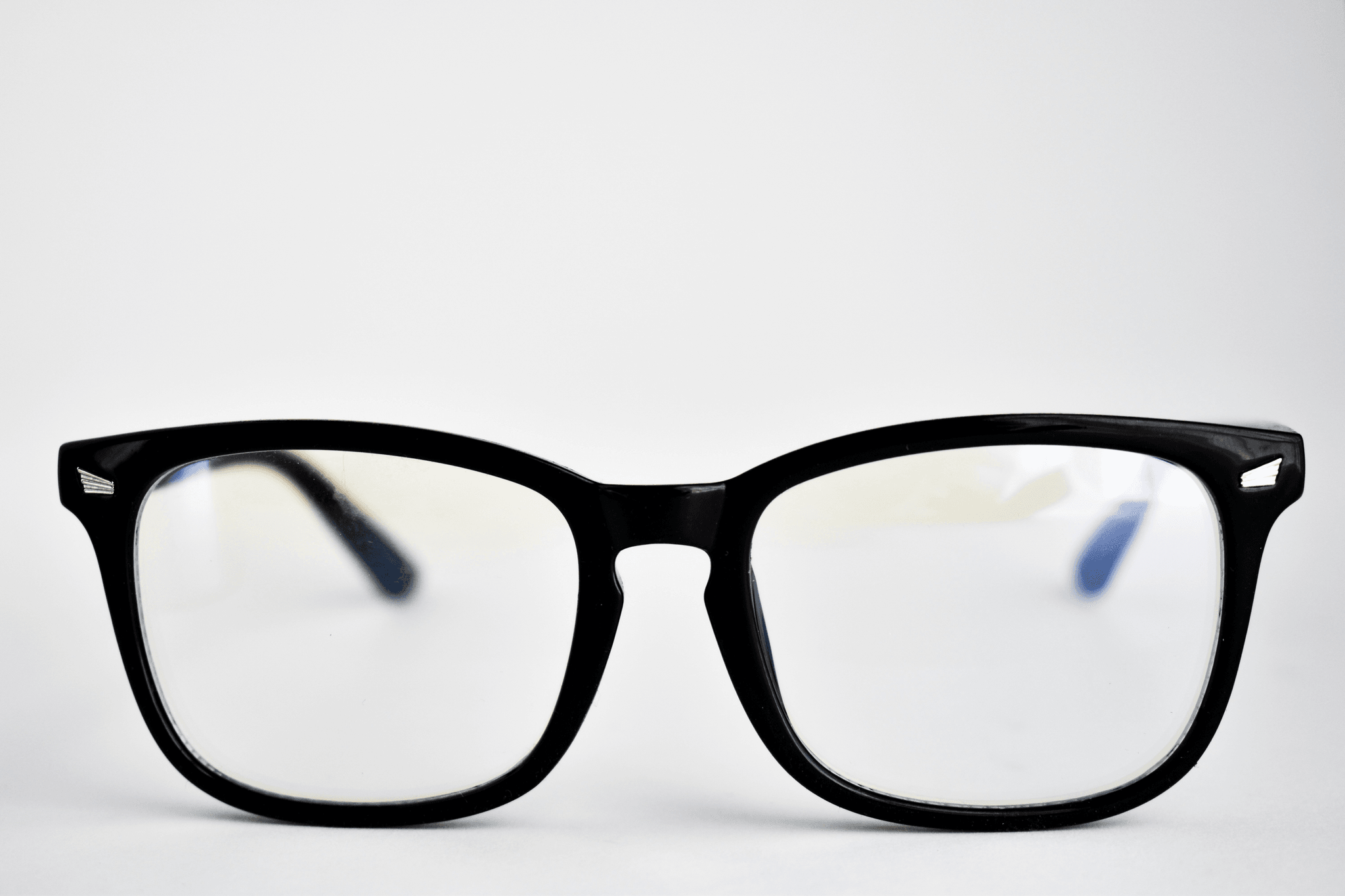Introduction

When it comes to selecting the perfect eyewear, understanding eyeglass frame materials is crucial. With a variety of options available, the debate often boils down to nylon vs acetate frames. Each material boasts unique characteristics that cater to different styles and functional needs, making it essential to grasp their differences.
Understanding Eyeglass Frame Materials
Eyeglass frame materials play a significant role in determining not just the aesthetic appeal but also the durability and comfort of your eyewear. Among these materials, nylon and acetate have risen to prominence in recent years due to their versatility and style potential. Understanding the nuances between various eyeglass frame materials can help you make an informed decision that aligns with your personal taste and lifestyle.
The Rise of Nylon and Acetate
The rise of nylon and acetate in eyewear fashion has transformed how we perceive glasses—not just as vision aids but as essential style statements. Nylon frames are praised for their lightweight feel and flexibility, while acetate frames are celebrated for their vibrant colors and patterns. As we explore this topic further, questions like Are nylon frames better than acetate? will arise, guiding us through the pros and cons of each material.
Choosing the Right Frames for Your Needs
Choosing the right frames goes beyond mere aesthetics; it involves considering comfort, durability, and how well they fit into your lifestyle. Factors such as face shape, personal style preferences, and even daily activities play a pivotal role in this decision-making process. By diving deep into comparing eyewear plastic options like nylon vs acetate frames, you'll be better equipped to answer questions such as What is the best material for eyeglass frame?
The Basics of Eyeglass Frame Materials

When it comes to choosing the right eyeglass frame, understanding the materials involved is crucial. Different materials offer unique benefits and drawbacks, influencing everything from comfort to durability. In this section, we’ll dive into the world of eyeglass frame materials, focusing on nylon and acetate.
Overview of Common Materials
Eyeglass frame materials can be broadly categorized into plastic, metal, and a combination of both. Plastic frames are often lightweight and comfortable, with nylon and acetate being two popular options within this category. Each material has its own characteristics that affect not only style but also functionality, making it essential to consider what fits best for your lifestyle.
Nylon vs Acetate: A Quick Comparison
Nylon vs acetate frames often sparks lively debates among eyewear enthusiasts. Nylon frames tend to be more flexible and resistant to impact, while acetate offers a wider range of colors and patterns for customization. So, are nylon frames better than acetate? It really depends on your personal preferences—if you prioritize durability over aesthetics or vice versa.
How Material Impacts Durability
The choice between nylon and acetate can significantly impact the longevity of your eyewear. Nylon frames are known for their resilience; they can withstand daily wear without easily breaking or bending out of shape. On the other hand, while acetate is less durable than nylon in terms of flexibility, it makes up for this with its ability to maintain vibrant colors over time—definitely a point worth considering when comparing eyewear plastic.
Pros and Cons of Nylon Frames

When it comes to selecting the best material for eyeglass frames, nylon is a popular choice that has garnered attention for its unique properties. But like any material, it has its own set of advantages and disadvantages that potential wearers should consider. As we delve into the world of nylon vs acetate frames, it’s essential to weigh these pros and cons carefully.
Benefits of Nylon Eyewear
Nylon eyewear is lauded for its lightweight nature, making it incredibly comfortable for all-day wear. This material offers excellent flexibility, which means that nylon frames are less likely to break under stress compared to more rigid materials. Additionally, they often come in a variety of colors and styles, allowing you to express your personal style while enjoying functional benefits.
Another significant advantage is nylon's resistance to chemicals and UV light. This feature ensures that your frames maintain their appearance over time without fading or degrading due to sun exposure or environmental factors. If you're looking for durability combined with fashion-forward design, nylon might just be the winning choice in the ongoing debate of nylon vs acetate frames.
Drawbacks: What to Consider
While there are many benefits associated with nylon eyewear, some drawbacks warrant consideration before making a purchase. One notable issue is that nylon can sometimes feel less luxurious than other materials like acetate; if you're seeking a high-end look and feel, this might be a concern. Moreover, not all nylon frames are adjustable; finding the perfect fit can be challenging if you have specific sizing needs.
Additionally, while they are generally durable, certain types of nylon may not withstand extreme temperatures as well as other materials could—especially if left in hot environments like cars during summer months. Therefore, when comparing eyewear plastic options such as nylon vs acetate frames, it's crucial to keep these limitations in mind.
Are Nylon Frames Better than Acetate?
The question Are nylon frames better than acetate? doesn’t have a one-size-fits-all answer; it largely depends on individual preferences and lifestyle needs. For those who prioritize lightweight comfort and flexibility in their eyewear choices, nylon may take the lead as the better option. However, if aesthetics and luxury appeal are high on your list—along with vibrant colors—acetate might steal the spotlight.
Ultimately, determining what is the best material for eyeglass frame hinges on personal style versus functional needs; both materials have their merits worth exploring further! Whether you lean towards innovative designs at Daposi or prefer classic styles offered by other brands, understanding each material's nuances will empower you to make an informed decision about your next pair of glasses.
Pros and Cons of Acetate Frames

When it comes to eyeglass frame materials, acetate frames have carved a niche for themselves with their unique blend of style and functionality. They are often favored for their aesthetic appeal, vibrant colors, and lightweight nature. However, like any material, they come with their own set of advantages and limitations that are worth exploring.
Advantages of Acetate Eyewear
One of the standout features of acetate eyewear is its versatility in design; it can be crafted into various shapes and styles that suit different face types. The richness in color options—from bold patterns to subtle hues—makes acetate frames a popular choice among fashion enthusiasts looking to make a statement. Additionally, acetate is hypoallergenic, which means it's less likely to irritate sensitive skin compared to other materials like metal.
Limitations to Keep in Mind
While acetate frames offer numerous benefits, they also have some limitations that potential buyers should consider. One major drawback is their susceptibility to heat; excessive exposure can warp the frames or cause them to lose shape over time. Furthermore, although they are generally durable, they may not withstand impacts as well as nylon frames do—leading some to wonder: Are nylon frames better than acetate?
Are acetate frames the best?
The question Are acetate frames the best? often arises during discussions about eyeglass frame materials. While they excel in aesthetics and comfort, the answer depends on individual preferences and needs—especially when comparing eyewear plastic like nylon vs acetate frames. Ultimately, what is the best material for eyeglass frame hinges on factors such as lifestyle requirements and personal style choices.
Comparing Eyewear Plastic

When it comes to choosing between nylon and acetate frames, understanding the nuances of these materials can make all the difference. Both have their unique characteristics that cater to different needs and preferences, making the decision a bit of a balancing act. In this section, we’ll delve into key differences, factors influencing your choice, and clarify whether nylon is indeed the same as acetate.
Key Differences Between Nylon and Acetate
Nylon vs acetate frames present distinct qualities that are worth considering. Nylon is known for its lightweight nature and flexibility, making it ideal for those who prioritize comfort during extended wear. On the other hand, acetate boasts vibrant colors and patterns due to its ability to be easily dyed, offering a more stylish aesthetic for fashion-forward individuals.
Durability is another crucial factor—nylon tends to be more resistant to impact and temperature changes than acetate, which can become brittle over time if not cared for properly. However, acetate frames often provide a more luxurious feel thanks to their smooth finish and customizable designs. Ultimately, understanding these key differences will help you decide which material aligns better with your lifestyle.
Factors Influencing Your Choice
When weighing nylon vs acetate frames in your eyewear decision-making process, several factors come into play. First and foremost is personal style; if you lean towards bold colors or intricate designs, acetate might steal your heart with its extensive options. Conversely, if you're after practicality without sacrificing too much flair, nylon could be your go-to option.
Comfort also plays a pivotal role—if you have sensitive skin or wear glasses all day long, choosing a material that feels good against your skin becomes essential. Additionally, consider how often you plan on wearing them; if they’re going to see daily use in various environments (think sun exposure or moisture), durability should weigh heavily in your decision-making process.
Is nylon the same as acetate?
Nope! Nylon is not the same as acetate; they are two different types of plastics used in eyeglass frame materials with distinct properties and applications. While both are popular choices in eyewear manufacturing due to their versatility and aesthetics—nylon being more flexible while acetate offers vibrant color options—they serve different purposes based on individual needs.
Understanding this distinction helps clarify questions like Are nylon frames better than acetate? The answer varies depending on what you're looking for: durability versus aesthetics or comfort versus style? So when pondering what is the best material for eyeglass frame?, remember that each has its pros and cons tailored to different lifestyles.
What is the Best Material for Eyeglass Frame?

Choosing the best material for eyeglass frames can feel like navigating a maze, especially with options like nylon and acetate vying for your attention. The decision hinges on various factors, from personal style to functional needs, making it essential to weigh these elements carefully. Ultimately, understanding the nuances of eyeglass frame materials will help you make an informed choice that suits your lifestyle.
Factors to Consider When Choosing
When deciding between nylon vs acetate frames, several key factors come into play. First and foremost is durability; nylon is known for its resilience and flexibility, while acetate offers a more luxurious feel but may not withstand heavy wear as well. Additionally, consider weight—nylon frames tend to be lighter than their acetate counterparts, which might influence comfort during extended wear.
Another important aspect is how the material interacts with your skin and environment. For instance, if you have sensitive skin or allergies, you might want to lean towards hypoallergenic options often found in high-quality acetate frames. Lastly, think about maintenance; some materials require more care than others to keep them looking fresh and new.
Personal Style vs Functional Needs
The eternal struggle: should you prioritize personal style or functional needs when selecting eyewear? While both aspects are crucial, striking a balance can lead to a perfect match for your personality and lifestyle. If you're leaning towards statement pieces that showcase your unique flair, then acetate frames might be the way to go due to their vibrant colors and patterns.
On the flip side, if you're someone who leads an active lifestyle or works in demanding environments where durability matters most—ask yourself: are nylon frames better than acetate? For everyday use where flexibility and strength are essential attributes, nylon could be your best bet without sacrificing style entirely.
Creating Unique Eyewear with Daposi
At Daposi, we believe that eyewear should go beyond mere functionality—it should reflect who you are! Bringing Your Vision to Life: Beyond Eyewear, Beyond Expectations! 🌟 Our commitment lies in assisting customers like you in developing new styles that truly stand out from the crowd. Whether it’s designing innovative eyewear or integrating sustainable practices into unique design ideas—our team is here every step of the way!
Imagine transforming your creative concepts into stunning physical objects with our professional production knowledge at Daposi! 🖊️🌍 We understand that each designer has distinct ideas; hence our tailored solutions cater specifically to fit your brand’s vision perfectly while ensuring top-quality results through cutting-edge techniques. So why settle for ordinary when exceptional awaits?
Conclusion

As we wrap up our exploration of eyeglass frame materials, it’s clear that the choice between nylon and acetate frames is not merely about aesthetics; it’s a blend of style, durability, and individual needs. Understanding the nuances of these materials can help you make an informed decision that aligns with your lifestyle. Whether you lean towards the lightweight flexibility of nylon or the vibrant colors of acetate, knowing their pros and cons will empower your choice.
Key Takeaways on Eyeglass Frames
In the ongoing debate of nylon vs acetate frames, it's essential to remember that each material has its unique advantages. Nylon frames are known for their strength and resistance to impact, while acetate offers a broader range of colors and patterns for those who prioritize style. Ultimately, understanding these differences can help you determine what is best for your eyewear needs.
Making an Informed Choice
When considering What is the best material for eyeglass frame? it’s vital to weigh factors like comfort, durability, and personal style preferences. While some may ask, Are nylon frames better than acetate? others might find that acetate frames provide a more fashionable option without sacrificing quality. Your decision should reflect both functional needs and aesthetic desires to ensure satisfaction with your eyewear.
Embracing Innovation in Frame Design
The world of eyewear is constantly evolving with innovative designs and materials like those offered by Daposi—bringing visions to life beyond just functionality! As we compare eyewear plastic options, keep in mind that sustainability and customization are becoming increasingly important in today's market. With Daposi's commitment to eco-friendly practices and tailored solutions, you can create unique eyewear that truly embodies your personal style while considering environmental impact.
